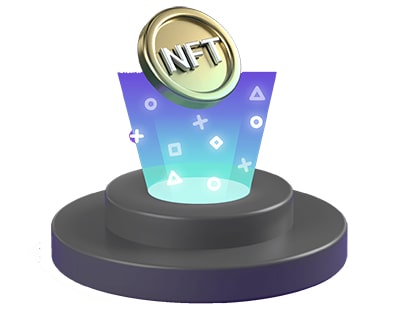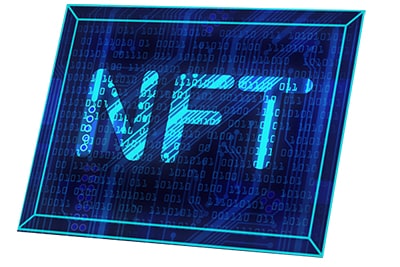NFTs - Country Focus: India
People don’t understand NFTs, Metaverse, and crypto today the same way they didn’t understand online shopping in the 1995” - Anuj Jasani
 The Indian economy is considered to be one of the largest economies in the world. It is considered that to have grown by 10% compared to the previous years when the NFTs and cryptocurrencies began to gain global traction. India has numerous users who are interested in investing their money using digital platforms like options, stock, and various forms of crypto assets to multiply their income. The prospects offered by the NFT platforms are beneficial for numerous Indian artists and crypto enthusiasts who wish to grow their popularity and capital returns.
The Indian economy is considered to be one of the largest economies in the world. It is considered that to have grown by 10% compared to the previous years when the NFTs and cryptocurrencies began to gain global traction. India has numerous users who are interested in investing their money using digital platforms like options, stock, and various forms of crypto assets to multiply their income. The prospects offered by the NFT platforms are beneficial for numerous Indian artists and crypto enthusiasts who wish to grow their popularity and capital returns.
In 2018 the Reserve Bank of India issued a circular to banks not to deal with the entities dealing with virtual currencies. In 2020, the Supreme Court of India set aside the circular issued by RBI in 2018. In India, the use of cryptocurrency is largely unregulated. On the internet, there are NFT platforms like Rarible, Open Sea, Foundation, Nifty Gateway, etc. The success of other crypto asset providers has encouraged many Indian startups to build similar NFT marketplaces. It facilitates crypto finance exchange so that they can convert the Indian Rupee to crypto bitcoins. The major Marketplaces in India are WazirX, Wall.app, OpenSea, Foundation, Nifty Gateway.
In 2021, the finance minister expressed that the government was not closing its possibilities for exploring different avenues regarding blockchains, bitcoins, and cryptocurrencies. The RBI has issued another circular ordering all banks to do an expected level of effort for transactions in virtual currencies in accordance with the anti-money laundering, foreign exchange, and combating of financing of terrorism law. It is settled that NFTs can address various things worldwide including in India. It is attributed to their representation of a digital art form. An NFT is a digital copy or token of basic original work. NFT does not confer ownership of the underlying work to which the NFT is directed.
India is in the process of building strong NFT laws. According to a report by NASSCOM, it is accounted that the public sector of India has continuously supported blockchain-based businesses. This could change after the passing of the Banning of Cryptocurrency & Regulation of Official Digital Currency Bill, 2019. The Bill forbids mining, generating, holding, selling, dealing in, issuing, transferring, disposing of, or using Cryptocurrency in India. Under Section 3. Cryptocurrencies are defined in the Bill as “any data or code produced through cryptographic implies that isn’t a piece of any Official Digital Currency and gives a digital representation of value which is traded with the guarantee or representation of having an inherent value in any business activity which might involve risk of loss or an assumption of profits or income, or functions as a store of value or a unit of account and includes its use in any financial transaction or investment, but not limited to, investment plans. Since NFTs do give a digital representation of an inherent value, they may possibly fall under “cryptocurrencies”.
In 2018, the Supreme Court in the case Internet and Mobile Association of India v. RBI held that the RBI circular dated 06.04.2018 prohibited national/ scheduled/co-operative banks and NBFCs to bargain in virtual currencies. Alongside different reasons, the Court recognized that the Inter-Ministerial Committee comprised on 02-11-2017, which initially suggested a particular legal framework including the presentation of a new law namely, Crypto-token Regulation Bill 2018, was of the assessment that a ban may be an outrageous tool and that the similar objectives can be accomplished through regulatory measures. Considering this, the ongoing legal position of NFTs is that they are not prohibited under Indian law.
Foreign Exchange Management Act (FEMA) relating to NFT
NFT is not regulated by any specific act in India but there are specific FEMA laws that prevent crypto-trading. The laws for crypto-trading would rely solely on how the assets have been treated in relation to ownership. Legislators should keep in mind that Bitcoin or NFT are unique items. FEMA laws have always been the regulator of the flow of currency across Indian Borders. Under current FEMA laws, crypto-assets must be rendered as elusive assets such as software ownership and the intellectual property so protected by FEMA regulations. We as bystanders need to realize that majority of the purchasers and sellers of NFT are situated outside the borders of India, thus members from India are much seen making cross-boundary moves outside the country to put resources into this new impending market so popularly known as NFT. We could securely say that the NFT position in the Indian market is an uncertain position. If the participants from India do keep on investing in the crypto-market they should do so through government-issued currencies that are accounted to their authorized dealer banks to have a more risk-averse approach.
IPR and NFT
 NFTs are digital tokens minted on a fundamental digital asset. NFTs do not grant copyright privilege. A copyright holder’s transfer of ownership rights to the purchaser of the NFT at the time of sale is mentioned in the provisions of the Copyright Act 1957. Once the rights have been assigned in accordance with the provisions of the Copyright Act, then an NFT holder would be treated as the owner of the copyrighted work. Section 14 of the Copyright Act gives the owner of a work the right to duplicate or distribute duplicates of his own work. Most NFT-related transactions take place through contracts, which may stipulate the terms of a license. The royalties of resale transactions set limits on the use of copyrights.
NFTs are digital tokens minted on a fundamental digital asset. NFTs do not grant copyright privilege. A copyright holder’s transfer of ownership rights to the purchaser of the NFT at the time of sale is mentioned in the provisions of the Copyright Act 1957. Once the rights have been assigned in accordance with the provisions of the Copyright Act, then an NFT holder would be treated as the owner of the copyrighted work. Section 14 of the Copyright Act gives the owner of a work the right to duplicate or distribute duplicates of his own work. Most NFT-related transactions take place through contracts, which may stipulate the terms of a license. The royalties of resale transactions set limits on the use of copyrights.
NFT and GST
The NFTs under India’s taxation regime depend on the nature or classification of the underlying asset. The definition of goods under the Central Goods and Services Tax Act 2017 includes moveable property other than money and securities, and services include anything other than property goods. GST is very likely to be imposed, based on what the NFT means.
NFT and Income Tax
The Finance Act, 2020 contains provisions regarding an equalization levy and charges a 2% fee on corporations based out of India. If a marketplace is considered an e-commerce operator under the Finance Act, then a 2% equalization levy may apply to the gross value of the NFT.
Cross border NFT transactions
 there is no general rule for the regulation of cross-border NFT transactions. NFTs may come under the Foreign Exchange Management Act as intangible assets. If they are classified as intangible assets then it is necessary to determine their location as they are backed up by cryptocurrencies. the data is recorded, shared, and synchronized across multiple data stores, through a distributed network of different network participants.
there is no general rule for the regulation of cross-border NFT transactions. NFTs may come under the Foreign Exchange Management Act as intangible assets. If they are classified as intangible assets then it is necessary to determine their location as they are backed up by cryptocurrencies. the data is recorded, shared, and synchronized across multiple data stores, through a distributed network of different network participants.
Conclusion
A key value proposition of the NFT is their constant need to be authentic and unique. The global market has seen a rise in the trends of investing in NFTs and has left an impact on the Indian market. India as a developing nation has started looking at its laws that require few amendments to fit the block in.
 English
English
 عربي
عربي Русский
Русский 官话
官话 português
português
 Türk
Türk 




